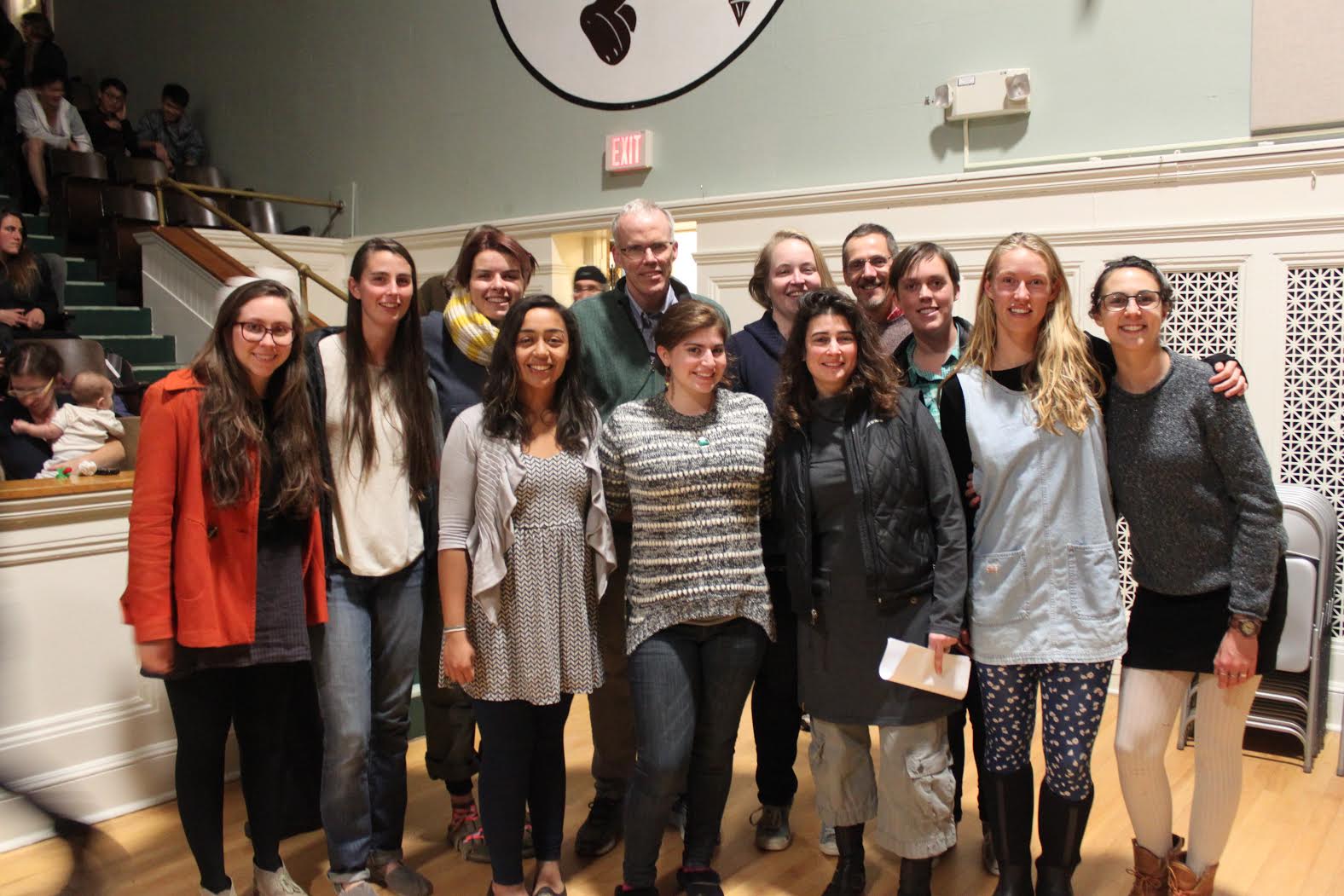
“I'm here to fill you with despair,” proclaimed Bill McKibben, one of our nation’s leading environmental advocates. On Oct. 19, McKibben spoke to a crowd of approximately 250 people gathered on the wooden bleachers of Keene Central School’s auditorium.
This public talk was the capstone of his visit to the Hamilton Adirondack Program in Keene, NY. Hamilton’s newest semester program admittedly impressed McKibben for connecting diverse aspects of the Adirondack Park together in one academic experience. After leading a class discussion during the program’s Common Experience Seminar and enjoying a communal dinner at the program site, McKibben was off to give his talk.
McKibben is well versed in the topic of climate change. He has spent decades advocating for safer energy practices and inspiring activism around the world. The despair he opened with turned to hope and a call-to-action, as he spoke for 90 minutes on the “The Fight for a Livable Climate.”
McKibben was direct: the fossil fuel industry and its politics pose a large threat to the fight against climate change. Fossil fuels are the largest contributing factor to carbon emissions entering the earth’s atmosphere. On a human level, McKibben argued that there exists a great power disparity between the fossil fuel industry and the world’s populations who depend on such forms of energy.
He wove environmental and humanitarian problems of climate change together. The repercussions of carbon emissions, such as rising pH levels in the ocean, melting ice caps, droughts, and wildfires, often affect areas with fragile infrastructures. Populations who experience these effects most severely are involved in an “almost perfect inverse relationship between how much [they] cause and how much [they] get hit”. He mentioned Haiti after Hurricane Sandy and the current state of the Philippines after Typhoon Koppu as recent examples.
Like fossil fuels, time is not a renewable resource. McKibben’s mission is to convince industry leaders, politicians, and the general public that this problem does have an expiration date. He urged a redirection of our current course if we are to, in the best case scenario, succeed at neutralizing the damage already done. In this effort, his organization 350.org has held global rallies, organized historic marches, and set a precedent for successful activism.
“Young people are in the lead everywhere,” McKibben remarked when asked about environmental activism. He hears a “moral authority” from this new generation and considers them to be a key resource to the environmental movement. McKibben said college campuses are perfect for enduring initiatives because “new crops” of students arrive every year. As for postgraduate advice he said that “no matter what you're passionate about, it will be useful. We need theologians, chemists, psychologists, structural engineers. They all fit into the paradigm of what we’re doing.”
McKibben admitted that he's not certain “good will prevail.” He's desirous, though, even cautiously hopeful, and his will to enact change spread to the audience who stood in ovation at the conclusion of his speech. McKibben acknowledged how thankful he was to be back in the Adirondacks, if only for a short stay, as he considers the park exemplary of nature’s strength of renewal.
Bill McKibben’s lecture was sponsored by the Hamilton Adirondack Program, the Office of the Dean of Faculty, and Keene Central School.
